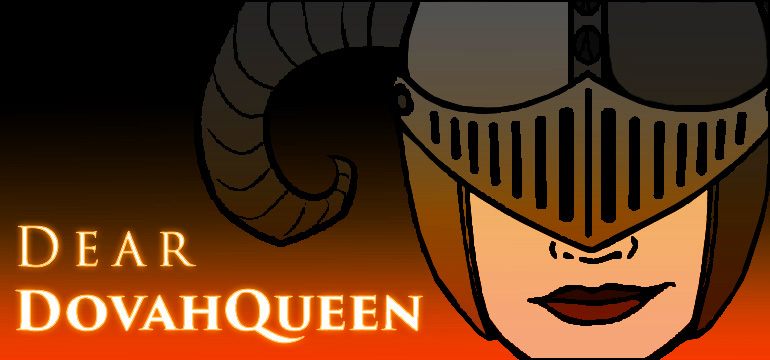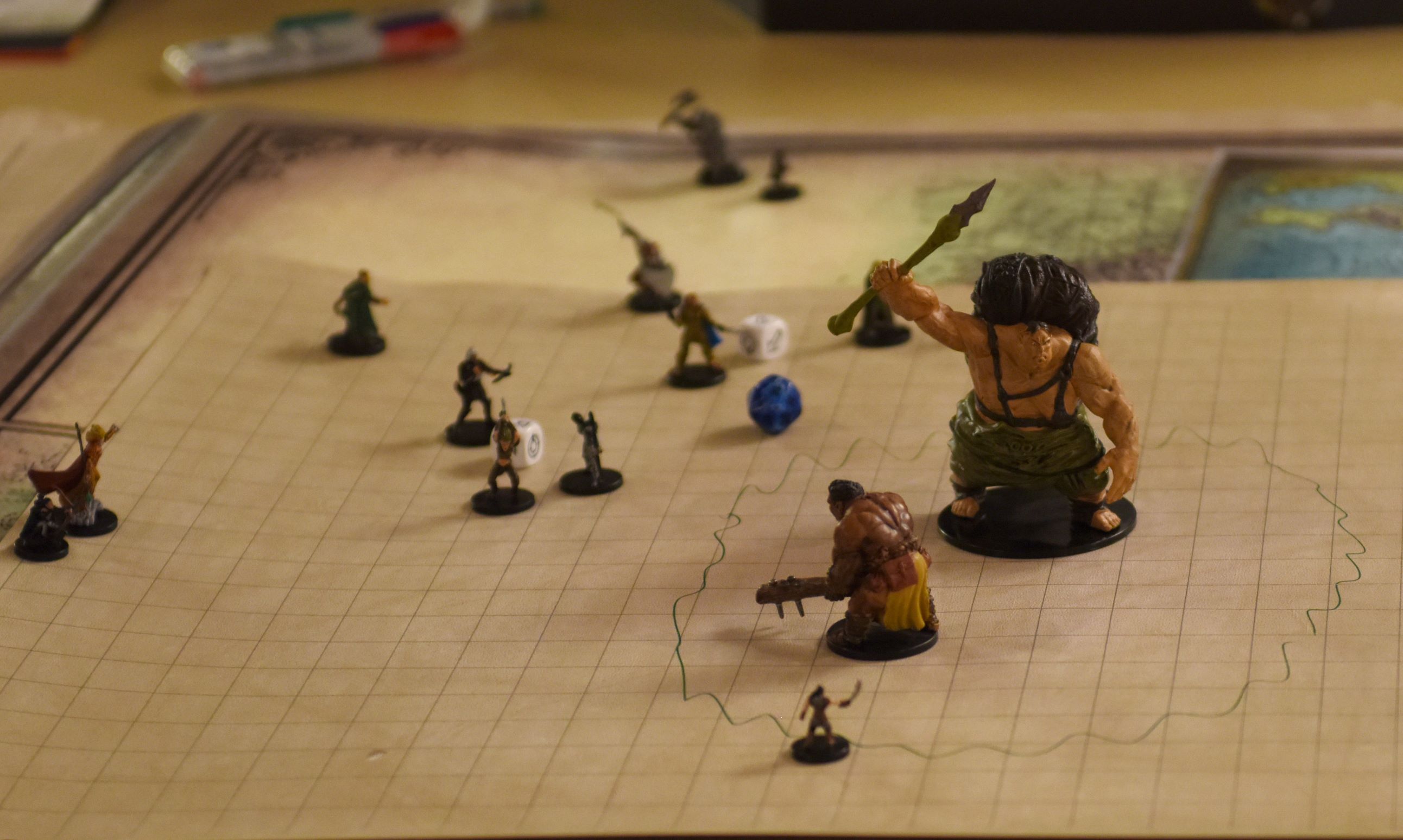Tabletop roleplaying games are as big and as deep as our imaginations allow. This is their greatest strength, but it’s also what makes them seem so overwhelming to would-be new players. How does one go from zero experience to roleplay hero?
Dear DovahQueen: I’ve been very interested in tabletop gaming for quite some time and have wanted to jump in, don’t know where to start with wanted to learn and get a campaign set up for myself and a few friends to give it a go. Not knowing where to start with what to buy or how much time I’d need to have everyone set aside in order to get this journey started. Any advice would be appreciated, thanks.–Newbie 4 Hire
Dear Noob: First of all, welcome to the community! These games have been around for 40 years, and some of us still remember the first edition days. (Not me though; I may be a veteran, but I’m not THAT veteran!) Most folks get started one of two ways: they either learn from a group that already knows how to play or they get a whole bunch of new players and teach themselves.
Being taught the game by people who already know what they’re doing is likely the most common way that new players are brought into the game, and that’s for a few different reasons. One is expense. The most basic investments one can make into the game are rulebooks and dice, but it’s also common to see battle mats, character sheets, miniatures, screens, markers, supplements, adventure books, props, terrain, and all sorts of other really cool stuff that makes the game more fun in their own ways. Chances are, if you join a group that’s been playing for a while, they’ll already have most of these things saving you the expense. In that case, all you’ll need to bring is some fresh imagination and maybe some pizza. After 40 years of being completely awesome, tabletop games have grown popular enough that you’re likely able to find a group willing to take in another player in any city. Ask around your local comic/gaming shop if they know any such groups, chances are they’ll be able to send you in the right direction if not help you make a character right there. A more digital way of finding a group is social media. It’s not very hard to find local gaming communities on Facebook if you’re near any kind of city. Join one of those and make a post introducing yourself. Unless you’re in the most antisocial, two-horse town, you’ll probably find someone willing to welcome you into the fold there.
While it’s true that this day and age makes it far easier to join a game than it has ever been, sometimes online is just not the best option. Maybe you have an established group of friends and everyone would have more fun learning within the group. This is how my group got its start 15 years ago, and there’s nothing wrong with going it old school. First, you’ll need to decide which game you all want to start. I recommend you look at the online resources available between your options and weigh those in your decision-making process. Some truly great games have all of their rules available for free online. If you’re not in a position to spend much money, there’s no shame in going this route. If the game you’re looking at isn’t available for free, as a group you’ll want to invest in at least the core rulebooks. Depending on the game, this could be anywhere between one or three books. You’ll have your bases covered if you get books that include basic rules for players, basic rules for the game master, and basic rules for adversaries. Depending on the game, these could cost the group anywhere between 30 to 100 dollars. After that, you will need at least one set of dice, but normally each person will want their own. Depending on the game you invest it, you could use all d6’s, d10’s or a set that runs the gamut; it’s important to know which system you’re going to be playing in before you buy the dice. After that, pencil and paper, and you’re done. Sure, things like character sheets, battle mats, and miniatures help the game a whole lot, but they’re not required. We spent years writing our characters on college-ruled notebook paper and I still make buildings from cardboard Amazon boxes. Some games have great beginner’s boxes you could invest in as well, and that’d give you everything you need to succeed as well.
Chances are if you dive into the game without someone there who knows the system already, you are absolutely going to have some hiccups while you’re learning, and that’s ok. Learn to accept those before you even go cast the first die, that way they don’t derail the game. It’s not critical that you read all of the books cover-to-cover, but do try to read parts that you’re sure will come up, like combat and character creation. When technical questions come up, try to find the answer in the book, but don’t spend a lot of time on it. Just go with your gut when you need a ruling on the fly. It’s not important that you made the right call; only that you and your players had fun. At any time, don’t be afraid to summon the most important rule of all: The Rule of Cool.
“I wanna shove the boss into the lava. What do I need to roll?”
“I’m not sure, lemme look in the Combat section. … Ok, so I’m not seeing it in here right off the bat; I’ll look it up later. For now, roll that d10, add your Strength to it, and tell me what you get.”
“17”
“Ok, you shove with all of your might against the grey orc’s chest. He lets out a hearty laugh as he easily resists your efforts. You reposition your feet and find just enough additional force to send his stupid, smug face careening into the flowing magma.”
Finally, as a veteran, let me promise you that there’s one more thing you absolutely need without a shadow of a doubt. Drinks and snacks. Sure, this may seem like a no-brainer, but you’d be surprised how easy it is to forget, and don’t underestimate their importance either! Any tabletop game is going to have periods of downtime for certain players. The best way to keep the fun going when it’s not your turn is to shovel handfuls of corn chips and salsa in your face. If you don’t have grub on hand, you can be sure that someone at some time is going to say the words “food run,” and then that’ll be all anyone can think about.
You can request RPG advice or send your questions by email to deardovahqueen@gmail.com or on Facebook.






